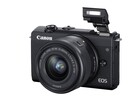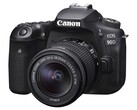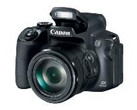The Canon EOS Rebel SL3, which the company markets as the EOS 250D and EOS Kiss X in some regions, may seem like a good option for those who are getting into DSLR cameras. The EOS Rebel SL3 is rather pricey at US$549 though, but Canon also sells the EOS 2000D, known as the Rebel T7 in some regions, for around US$300 if your budget does not stretch that far. Reviews have extolled that the EOS Rebel SL3 is Canon's "smallest and lightest" DSLR to date and that it is a "great all round performer". Likewise, the EOS 2000D has been hailed as "a decent option for a first-time buyer".
However, both cameras have no center pin in their horse shoe mounts, which many third-party flash accessories require to work. This pin has been present on Canon DSLRs for decades, as it has for practically all competitor brands too. The pin allows DLSRs to trigger third-party flash accessories when set to manual settings, without which they cannot be operated.
Removing this pin locks people into buying Canon flash accessories, which cost up to 5 times more than some third-party alternatives as pointed out by Michael Andrew (Michael The Maven) on YouTube. Oddly, other Canon DSLRs like the EOS M50 have a center pin, which currently only costs US$50 more than the EOS Rebel SL3. Either way, this a shady move by Canon, and we thank Michael The Maven for bringing it to everyone's attention.





























